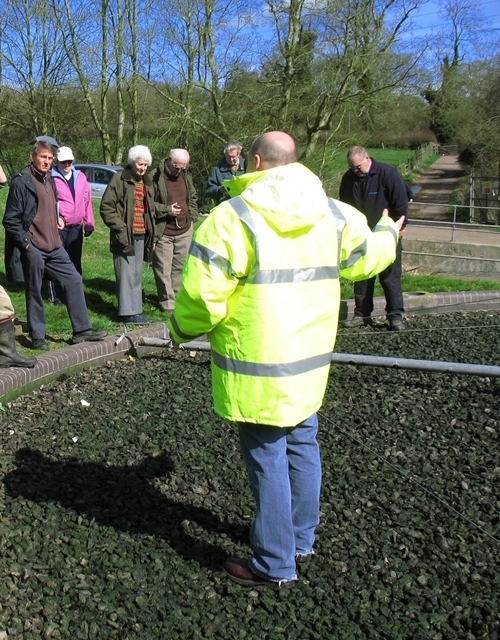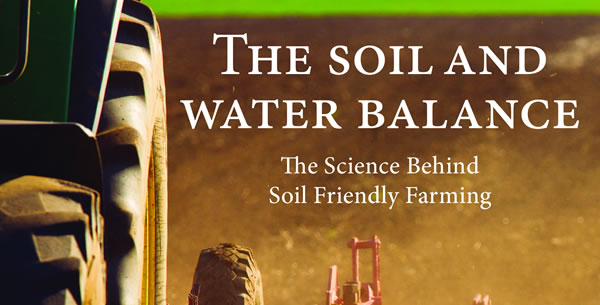Blog written by Chris Stoate, Head of Allerton Project Research

Phosphorus is an essential element. It is involved in multiple biological functions and is an important fertiliser for crop growth. It is also a finite resource and one that must be imported to the UK from other countries, some of which are politically unstable. Phosphorus security is a growing concern, not least for farmers for whom the cost has doubled over the past decade or so, while crop yields and prices have remained more or less constant. We need to use phosphate fertilser more efficiently for these reasons.
Phosphorus also causes ecological problems in water, even at quite low concentrations, as our research in the past has revealed. Phosphorus gets into water at both ends of the food chain.
Phosphate fertiliser applied to land to produce our food is taken up by crops and some of it ultimately ends up in the food we eat. However, most of it gets bound to soil particles and remains in the field. In fact, most of the phosphate fertiliser applied to land is estimated to be still sitting there in a form that is unavailable to crops.
But some ends up in watercourses when soil is eroded from fields. Much of the research we have been doing at the Allerton Project in recent years aims to improve soil management to reduce the loss of soil and phosphate from land to water. We don’t have all the answers, especially on our clay soils, but our research is improving our understanding of how to address this issue.
At the other end of the food chain, phosphorus in food that is surplus to our requirements is excreted. This ends up in sewage treatments works and septic tanks. The efficiency of urban sewage treatment works has improved in recent years, but at a price. This cost cannot be justified for small rural sewage treatment works in agricultural areas.
Our results from the Water Friendly Farming project consistently show that this domestic source of phosphorus, rather than farming, is the main contributor to phosphorus concentrations at the base of our study catchments. Its soluble form, and predominance during summer and autumn baseflow also mean that it has the greatest ecological impact. Logic, and the requirements of a circular economy, suggest that we should capture that phosphate and use it as fertiliser, but the average amount produced by our local sewage works is enough to apply to just one acre of land. It is not remotely cost effective to do so.
RePhoKUs is a research project run from Lancaster University which is looking at the whole phosphorus system with a view to developing approaches that optimise the sustainable management of this crucial resource. The Welland is one of three national case studies in which local farmers are contributing to the project by sharing data and ideas.
We are also interested in how our diet influences the amount of phosphorus in the food production and consumption system, including its occurrence in water, as different components of our diet are associated with different phosphorus concentrations. There is an online survey for local residents to complete. If you live in the Welland river basin, take a look, answer a few questions about what you eat, and ponder how you fit into the phosphorus system!

Get the inside track on soil and water research
Priced now at just £4.95 (50% off), The Soil & Water Balance is a handy paperback which provides the inside track on soil and water research.
Presented in a Q&A style, much like our popular Moorland Balance, this 100-page book looks at the problems and solutions on topics ranging from erosion and contamination, to the impact on songbirds and other wildlife.
Combining years of research at the GWCT's Allerton Project demonstration farm with tens of external scientific papers, this is a fascinating study of how farming can adapt to the challenges it currently faces.
View Book >
or
Buy Now - £4.95 >
100% Secure. All Credit & Debit cards, PayPal, Apple Pay and Google Pay accepted.
